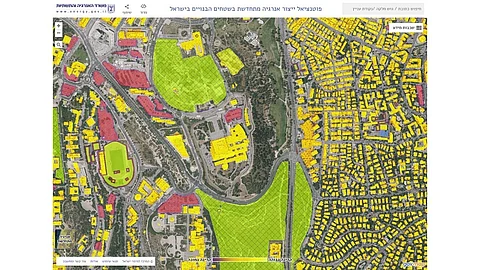

Israel has launched the Solar Roofs program, targeting 100,000 new PV system installations on residential rooftops
It promises reduced payback times for participating households and annual savings on their investments
The Energy Ministry says this will ensure continuous electricity supply during emergency hours while increasing the country’s energy security
The Ministry of Energy and Infrastructure in Israel has launched a new target for the country to install 100,000 new rooftop solar systems by 2030 under the Solar Roofs program to encourage the adoption of solar energy and strengthen its energy independence and resilience.
It entails the deployment of 1.6 GW of solar energy, covering 15% of residential rooftops, contributing to the country’s overarching goal of 30% of renewable energy capacity in the electricity mix by 2030. It will turn rooftop solar system owners into prosumers, enabling them to consume the electricity generated and also sell excess power to the national grid.
Support from the government will be offered in terms of new tariffs that will help reduce the payback period to 5 years. Households can expect stable annual returns of over 14% for 25 years.
For instance, a 15 kW rooftop solar system on a residential rooftop could lead to an average annual income of NIS 13,000/year. The income will increase to NIS 25,000/year for an average system capacity of 30 kW. Residential buildings that invest in a rooftop solar and storage system will be able to ensure energy security by ensuring a continuous supply of electricity during emergencies, added the ministry.
To ensure a speedy and successful rollout of the program, the ministry will establish a national portal for renewable energies, along with implementation centers to guide residents in installing such systems. The ministry said it is also examining the possibility of subsidized loans for housing committees and promoting their installation in public housing buildings.
Recently, the Energy Ministry and the Israel Mapping Center launched a mapping tool powered by artificial intelligence (AI), to help estimate the potential for solar energy on the rooftops, and expected income from the sale of electricity. It will provide an estimate of solar energy production on rooftops across land uses for both public and private spaces.
The country’s Energy Minister Eli Cohen stated, “The ‘100,000 Solar Roofs’ program is a historic step we are taking for the benefit of the citizens of Israel, which will bring about a revolution in the energy market. Installing solar panels allows roof owners to enjoy additional financial income and consume electricity during emergency hours, and it increases the energy security of the State of Israel, while producing non-polluting electricity for the benefit of the health of all citizens.”
Israel has seen an average annual renewable energy installation rate of 1 GW, but the ministry estimates a yearly requirement of 1.4 GW to meet the 30% renewable energy target by 2030.
